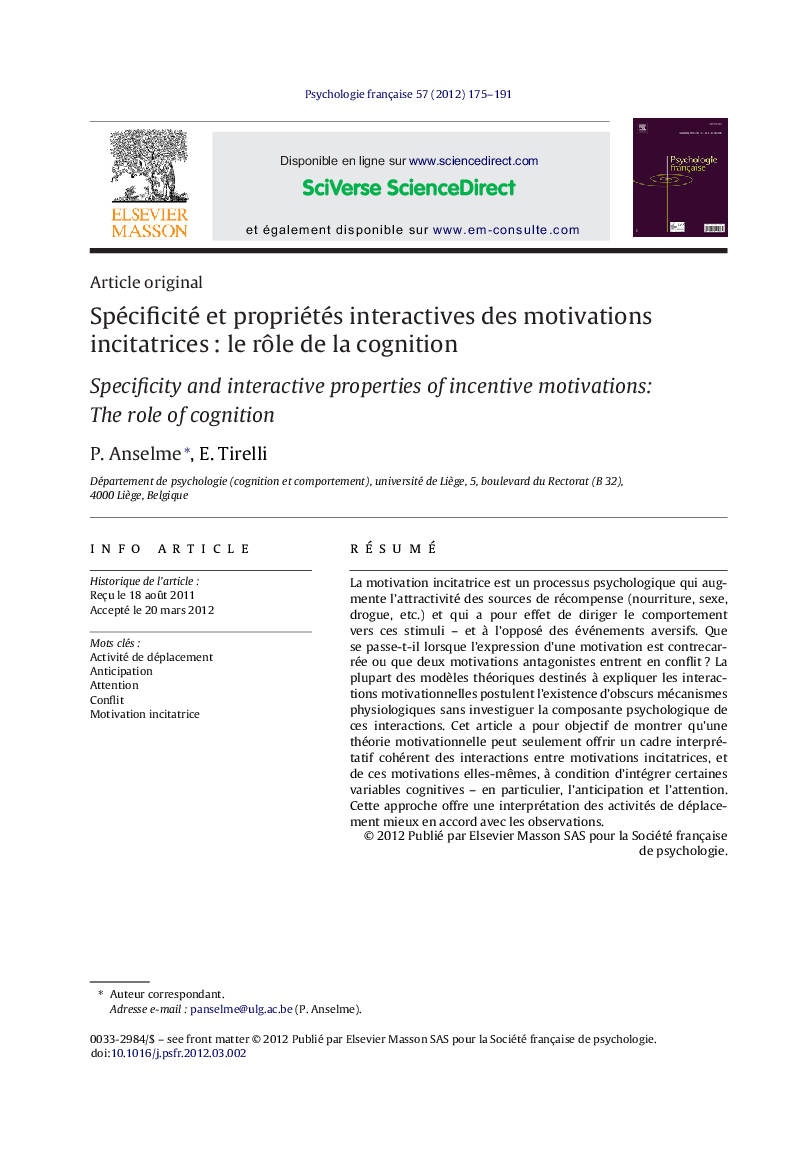| Article ID | Journal | Published Year | Pages | File Type |
|---|---|---|---|---|
| 335459 | Psychologie Franaise | 2012 | 17 Pages |
RésuméLa motivation incitatrice est un processus psychologique qui augmente l’attractivité des sources de récompense (nourriture, sexe, drogue, etc.) et qui a pour effet de diriger le comportement vers ces stimuli – et à l’opposé des événements aversifs. Que se passe-t-il lorsque l’expression d’une motivation est contrecarrée ou que deux motivations antagonistes entrent en conflit ? La plupart des modèles théoriques destinés à expliquer les interactions motivationnelles postulent l’existence d’obscurs mécanismes physiologiques sans investiguer la composante psychologique de ces interactions. Cet article a pour objectif de montrer qu’une théorie motivationnelle peut seulement offrir un cadre interprétatif cohérent des interactions entre motivations incitatrices, et de ces motivations elles-mêmes, à condition d’intégrer certaines variables cognitives – en particulier, l’anticipation et l’attention. Cette approche offre une interprétation des activités de déplacement mieux en accord avec les observations.
Incentive motivation is a psychological process that increases the attractiveness of rewards (food, sex, drugs, etc.) and directs behaviour towards those stimuli – and in the opposite direction to aversive events. What does happen when the expression of a motivation is thwarted or when two antagonistic motivations are conflicting? Most theoretical models designed to explain motivational interactions postulate the existence of unclear physiological mechanisms without tackling the psychological component of such interactions. This article aims to show that a motivational theory can only provide a coherent explanatory framework for incentive motivational interactions, and for such motivations as well, if they are able to take into account certain cognitive variables – in particular, anticipation and attention. This approach provides an interpretation of displacement activities that is in better agreement with the variety of observations.
